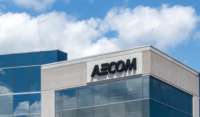When EMCOR Group CEO Anthony Guzzi and his colleagues present the corporation’s final results for 2019 on Feb. 27, they will likely describe another year of solid profit, smart acquisitions and focus on a disciplined approach to winning new work. About the only thing that could have held EMCOR back in 2019 would have been a shortage of workers, but the company believes it has figured that out, too.
Much of it comes down to the contractor’s various operating units’ stability and reliability as an employer, company leaders say.
Except for a few markets, EMCOR's family of electrical and mechanical contractors are able to choose the craft workers that staff its projects, Guzzi told analysts in the fall. And, he added, the company does everything it can to keep those workers continuously employed, well-managed, satisfied that their good work is recognized and safe.
For the first nine months of 2019, EMCOR (EME-NYSE) reported non-GAAP operating income of $338 million, or 5% of its revenue of $6.8 billion, vs. $289 million on $5.9 billion for the same period in 2018.
The company makes carefully selected acquisitions each year. Its focus is mechanical and electrical construction, but it also has a huge business in building and facility services. Everywhere it can EMCOR stresses using BIM models and prefabrication.
How EMCOR puts together the puzzle pieces of project staffing, at least as seen from the CEO’s office, is just as important as any aspect of its business these days.
Productivity is important. In the autumn conference with investor analysts, Guzzi explained that the company worries “a lot more about labor productivity than dollar per hour cost.” BIM and prefabrication help EMCOR mitigate any “excessive” labor on a project, he said
Unions have been helping, too. As far as negotiating collective bargaining agreements, Guzzi told analysts that “not all unions, but most of our local agreements have been reasonable,” and that the company works under project labor agreements “which would be at a reduced rate versus the overall rate in the market, because they [unions] want to win the work.”
And being a desirable employer is another factor.
‘Don't underestimate the significance of a destination of choice from an employees' perspective,” added Mark A. Pompa, EMCOR’s chief financial officer. “Clearly, we've been very successful for s long number of years and we have a great track record of working in harmony with our employment base, and as a result, we both reap the benefits.”






Post a comment to this article
Report Abusive Comment